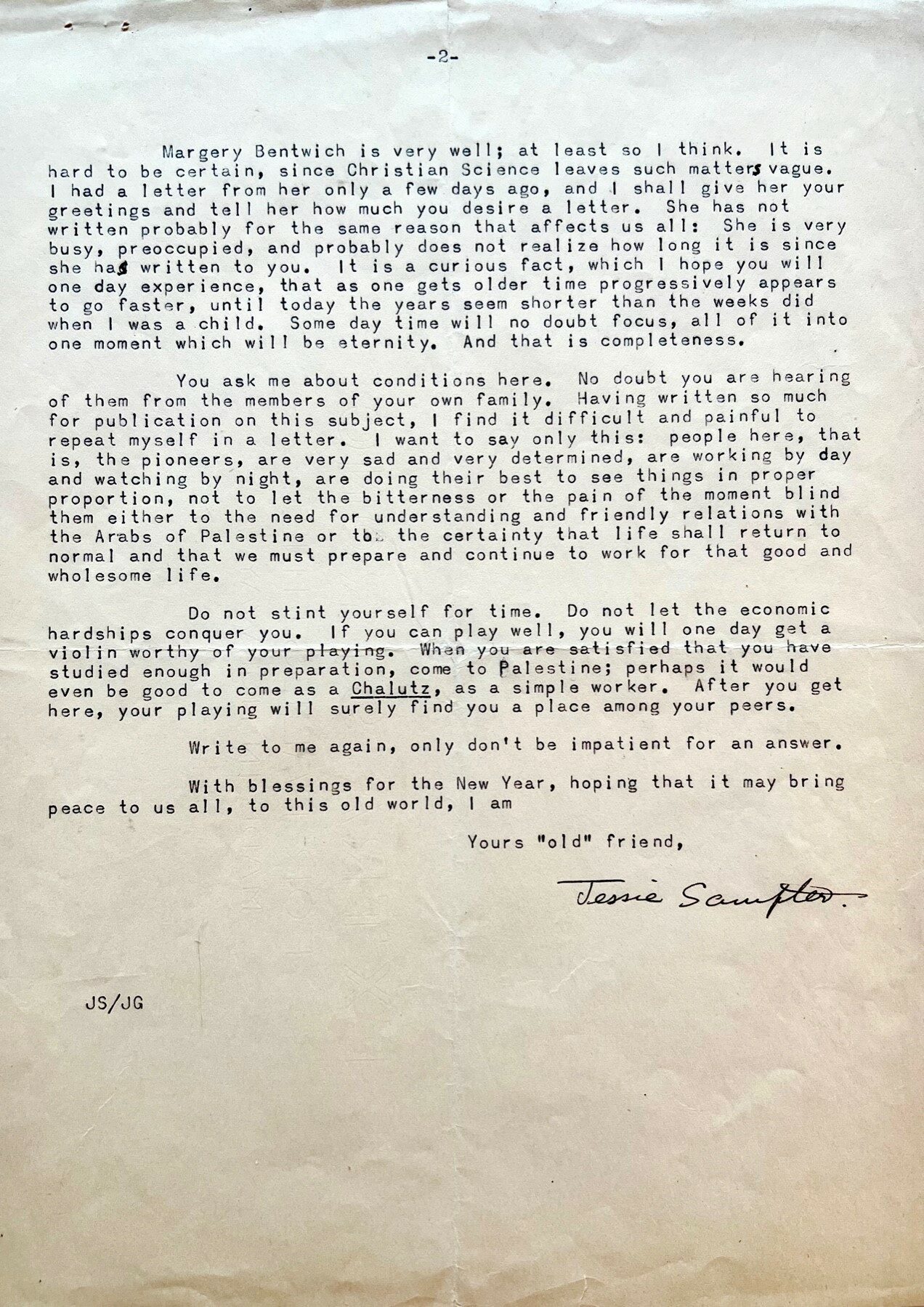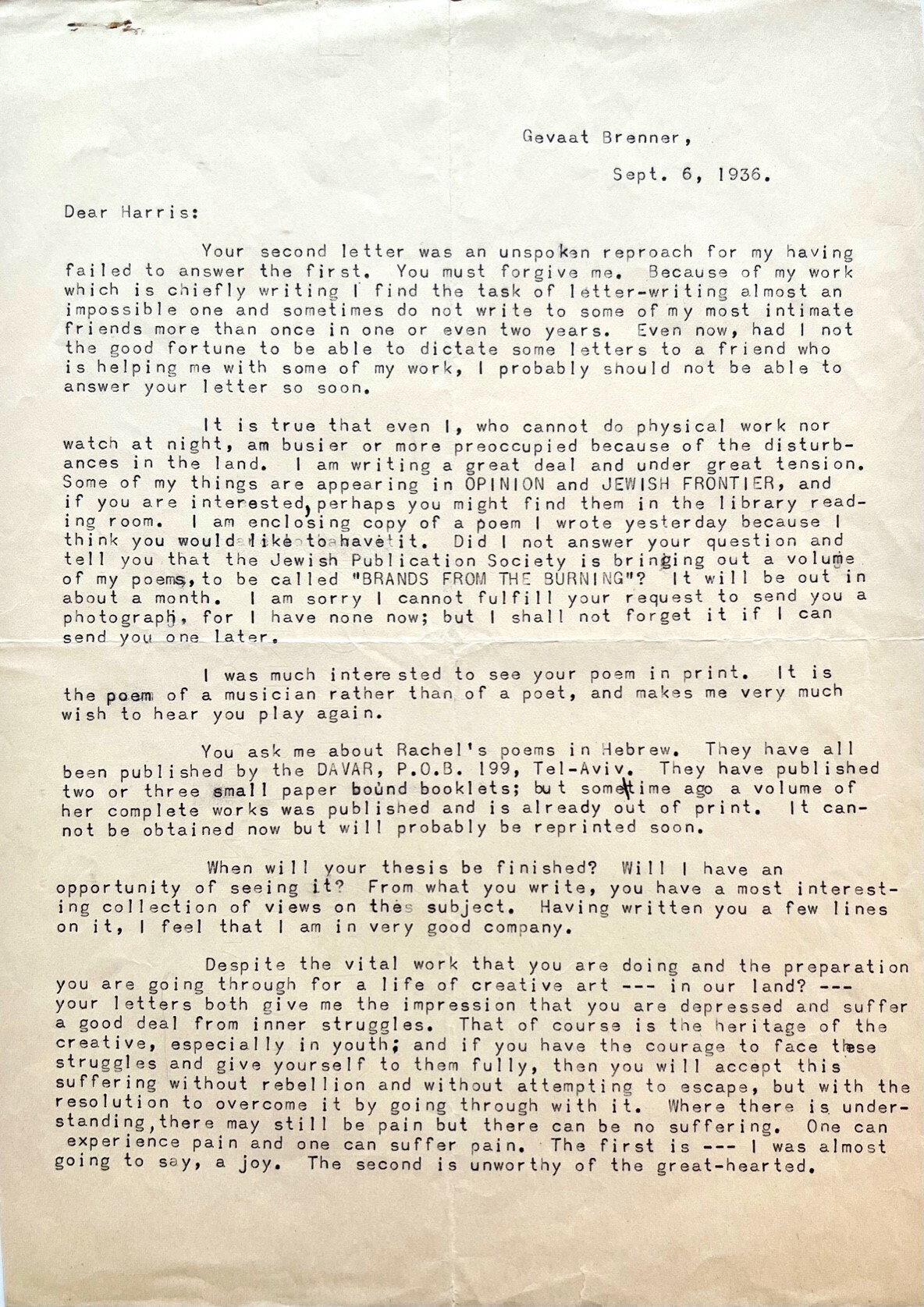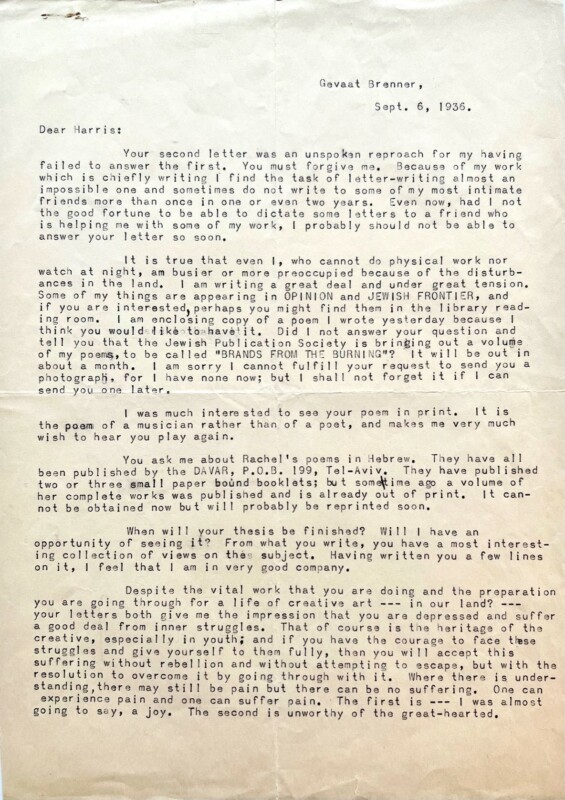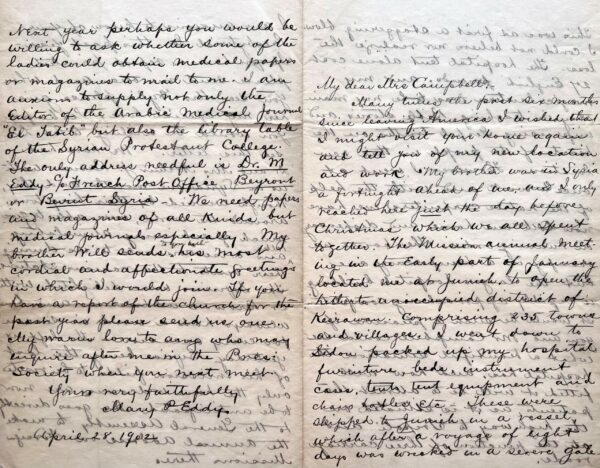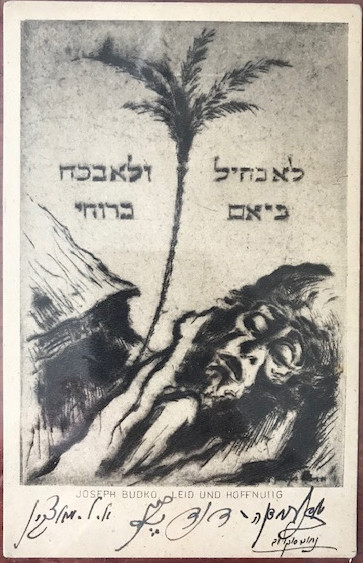I was much interested to see your poem in print. It is the poem of a musician rather than of a poet and makes me very much wish to hear you play again.
You ask me about Rachel’s poems in Hebrew. They have all been published by the DAVAR, P.O.B. 199, Tel-Aviv. They have published two or three small paper bound booklets; but some time ago a volume of her complete works was published and is already out of print. It cannot be obtained now but will probably be reprinted soon.
When will your thesis be finished? Will I have an opportunity of seeing it? From what you write, you have a most interesting collection of views on the subject. Having written you a few lines on it, I feel that I am in very good condition.
Despite the vital work that you are doing and the preparation you are going through for a life of creative art – in our land? – your letters both give me the impression that you are depressed and suffer a good deal from inner struggles. That of course is the heritage of the creative, especially in youth; and if you have the courage to face these struggles and give yourself to them fully, then you will accept this suffering without rebellion and without attempting to escape, but with the resolution to overcome it by going through with it. Where there is understanding, there may still be pain but there can be no suffering. One could experience pain and one can suffer pain. The first is – I was almost going to say, a joy. The second is unworthy of the great-hearted.
Margery Bentwich is very well; at least so I think. It is hard to be certain, since Christian Science leaves such matters vague. I had a letter from her only a few days ago, and I shall give her your greetings and tell her how much you desire a letter. She has not written probably for the same reason that affects us all: she is very busy, preoccupied, and probably does not realize how long it is since she has written to you. It is a curious fact, which I hope you will one day experience, that as one gets older time progressively appears to go faster, until today the years seem shorter than the weeks did when I was a child. Some daytime will no doubt focus, all of it into one moment which will be eternity. And that is completeness.
You ask me about conditions here. No doubt you are hearing of them from the members of your own family. Having written so much for publication on this subject, I find it difficult and painful to repeat myself in a letter. I want to say only this: people here, that is the pioneers, are very sad and very determined, are working by day and watching by night, are doing their best to see things in proper proportion, not to let the bitterness or the pain of the moment blind them either to the need for understanding and friendly relations with the Arabs of Palestine or to the certainty that life shall return to normal and that we must prepare and continue to work for that good and wholesome life.
Do not stint yourself for time. Do not let the economic hardships conquer you. If you can play well, you will one day get a violin worthy of your playing. When you are satisfied that you have studied enough in preparation, come to Palestine; perhaps it would even be good to come as a Chalutz, as a simple worker. After you get here, your playing will surely find you a place among your peers.
Write to me again, only don’t be impatient for an answer. With blessings for the New Year, hoping that it may bring peace to us all…”
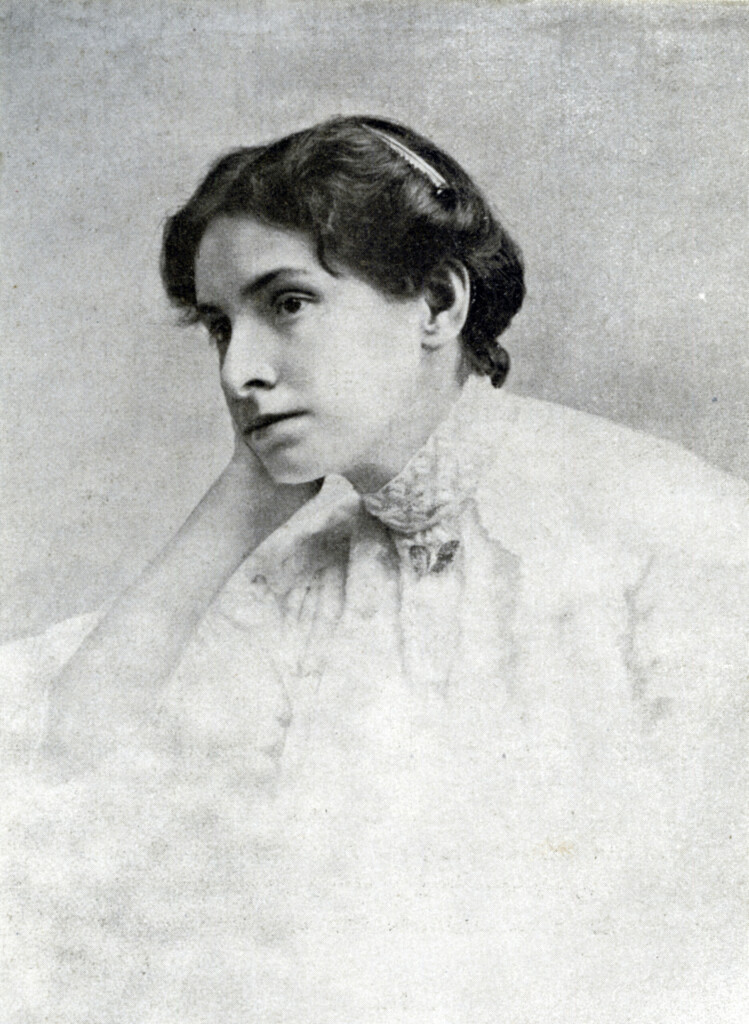
Jessie Sampter
The daughter of a New York attorney, Sampter was crippled by polio at the age of 13. Nonetheless, she sought a higher education, authored poems on subjects related to pacifism and Zionism, and explored Unitarianism. Her interests brought her into the orbit of Henrietta Szold, who became a close friend, and Sampter began working for Hadassah, the Women’s Zionist Organization of America founded by Szold, organizing its school of Zionism, writing textbooks, and coordinating classes and events for the organization. In 1919, Sampter immigrated to Palestine where she helped secure educational opportunities for Yemenite Jews and continued to write poetry, often about peaceful coexistence between Arabs and Jews. Our letter, written from Kevitza Gi’vat Brenner, which was established in 1928, mentions her forthcoming book of poetry, published in 1937, entitled Brand Plucked from the Fire. Sampter’s letter mentions Marjorie Bentwich (1888-1976), whose father, Herbert, was a leading figure in the English Zionist movement and whose brother, Norman, served as Palestine’s first attorney general. Marjorie co-authored several biographies including Herbert Bentwich, the Pilgrim Father, Thelma Yellin: Pioneer Musician, Lilian Ruth Friedlander, and the 1913 work Jews of Today.
“The disturbances in the land” and “conditions here,” refer to the Arab Revolt which began in April 1936 with a general strike objecting to British rule in Mandatory Palestine and the large influx of Jewish settlers. The strike lasted until late 1937 when it grew into an outright revolt violently suppressed by the British Army and its colonial police force.
Lightly folded with staple holes in the upper left corner and several minor holograph corrections. Rare.

